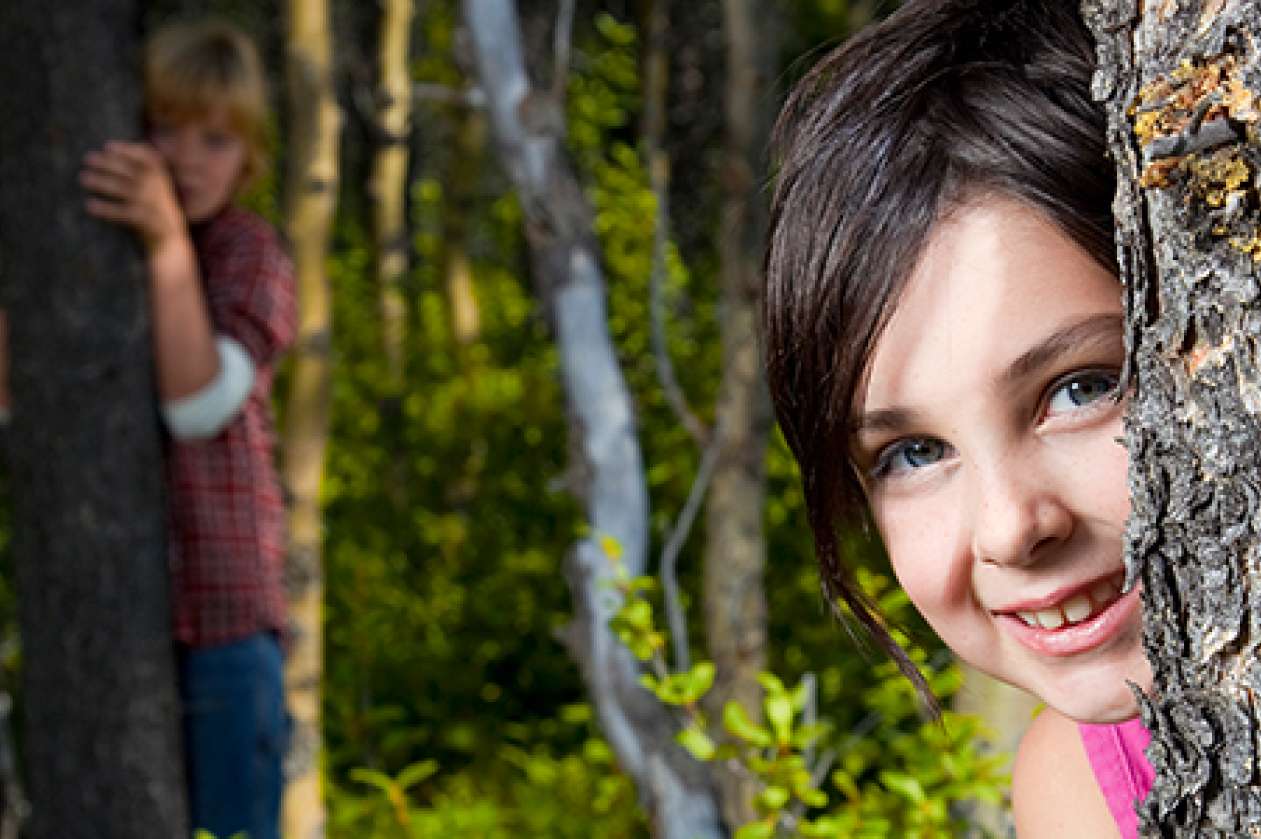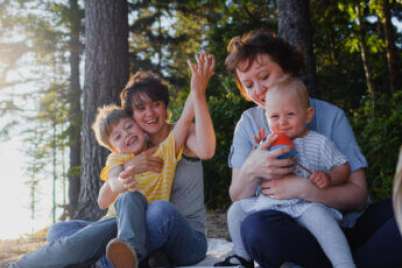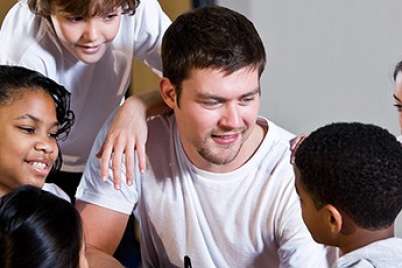
Kids in the Woods Initiative builds kids’ character and develops physical skills
“Don’t touch that.” “Don’t go there.” “Don’t climb that.” “Get down.”
Our kids hear the word “no” constantly. So much so, in fact, that when Mark Yearwood takes kids on nature adventures in the wilderness in Rouge Park in Scarborough, Ontario, they are shocked when the answer to “are we going down there?” is a resounding “yes!” Whether it’s down a hill to a muddy area or alongside a creek to catch crayfish, Mark has created a space for kids to safely explore in the wild.
He does this through his non-profit organization called Kids in the Woods Initiative (K.I.W.I) and he’s been running programs since May of 2013 and has had over 400 kids participate.
Mark describes what he offers as, “more of a nature experience rather than nature education because we’re focused more on play and discovering, rather than teaching kids about the different species of plants and animals. We talk about what kinds of animals and plants are there but…it’s more about having adventures that kids will remember so as they get older they’ll think about the fun they had in nature and grow up to be adults that will care about and advocate for the forest”.
A lawyer by profession, he was inspired to start this initiative after bringing his nephews and their friends hiking in Rouge Park and seeing how much they loved it. While hiking he noticed how few kids there were in the park and he thought he would start a program that could help change that.
For those families that don’t have easy access to the wilderness, or perhaps lack the desire and skills to take their kids out for hikes in the forest, programs like K.I.W.I. provide an excellent way to introduce your kids to the joys and challenges playing in nature can offer.
I recently had the opportunity to chat with Mark about his program and its many benefits.
How do you think being in nature can contribute to a child developing physical skills?
There are all sorts of opportunities [to develop] balance like walking on a tree that’s fallen down. Or we use the creek; I teach them how to skip a rock, even when we’re using our little nets in the creek, we’re coordinating our eyes and our hands to catch a crayfish or trying to grab a frog in your hands. There are lots of opportunities to develop physical skills and they do but what I’m mostly noticing is their willingness to try and the willingness to do new things. One of the biggest things that kids develop through this program is resilience.
Do you see an improvement in the kids’ physical skills from the beginning to the end of a session?
I do. In preparing for this work, the resources I studied talked about child passions — and one of the child passions that never fails is climbing. If they see a hill they want to climb it, if they see a tree they want to climb it. It’s the physical challenge and sometimes — kids will start at the bottom and slide back down — they might get discouraged. I’ll encourage them and I’ll talk to them about better technique while they’re climbing and how they can make it. Just last saturday in the morning program I run, a child was trying to make a climb, and the other kids were having an easier time. He was about to give up but I encouraged him on and said, “think like a coyote”, and eventually he made it up and was so proud of himself.
Do you think nature is on parents’ radar when they’re thinking about programs for their kids?
The issue of nature connection, in one way, has never been more talked about. There have been certain books written like Richard Louv’s “The Last Child in the Woods”, and others like that, so the issue of being out in nature is more out there than it’s ever been, but still it’s got a ways to go to penetrate the consciousness. Because when parents are thinking about exercise [for their kids], they might think of hockey or gymnastics or dance, but they might not make the connection that going for a hike in nature is awesome exercise, too. Also, there are no standings, or awards, there are no measurables for parents to look at. But the biggest measurable is really your child’s character.
Have you ever had a child who thought nature wasn’t for them or who thought they weren’t outdoorsy and seen them have a change of heart?
Oh yes! Last summer we had a group of 30 or so kids visit from a community centre. Two young girls arrived who were about 9 or 10-years-old. The first thing they said to me was, “we hate nature”. They weren’t interested in the game the other kids were playing, so I thought, okay, let me try something creative. I engaged them by telling them a story about the Rouge Park legend of forest fairies that come out at night and like to visit fairy homes. They started building a fairy home on a forest rock. By the end of the day they’d had a great time.
What benefits are you seeing in the kids who come to your programs?
There are so many benefits to being outside in nature and it’s different from the benefits of playing in the playground at school. Time in nature is just so important and there are so many benefits, not just physical exercise — the term self-esteem is used a lot — but when a child tries something and they fail at first and finally succeed on their own, through their own determination, it’s just an amazing thing. I’ve heard from parents how they have noticed a difference in their children’s approach to life. Resilience, persistence, determination, willingness to try new things. All those come from the unstructured environment of being in Rouge Park.
How important is the “unstructured” part?
It’s a big deal that’s it’s unstructured. I do plan activities but I go with the flow of the children if they want to do something else. The after school program I have is really a free play kind of thing. On the first day [the children] were all looking at me waiting for direction, and I said, “start exploring, look around.” And they were like, “what are we supposed to do”? and I said, “play, get dirty”. By the end they were having so much fun they didn’t want to go.
I really just try to create a space for them to be in and to keep them safe while they just explore, dream, and discover.
K.I.W.I. offers year-round programming on Saturdays and after-school, a weekday program for parents at home with kids under 3, a program for homeschoolers, and an elementary student field trip program.






Way to go Mark!
So happy for you and proud of you for sharing your dream and following through!